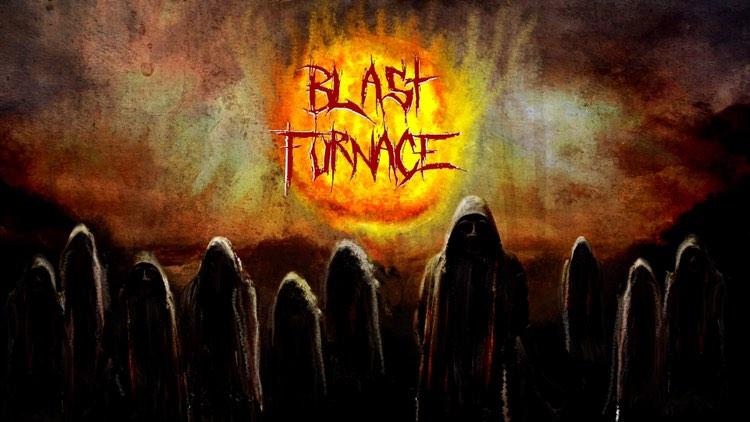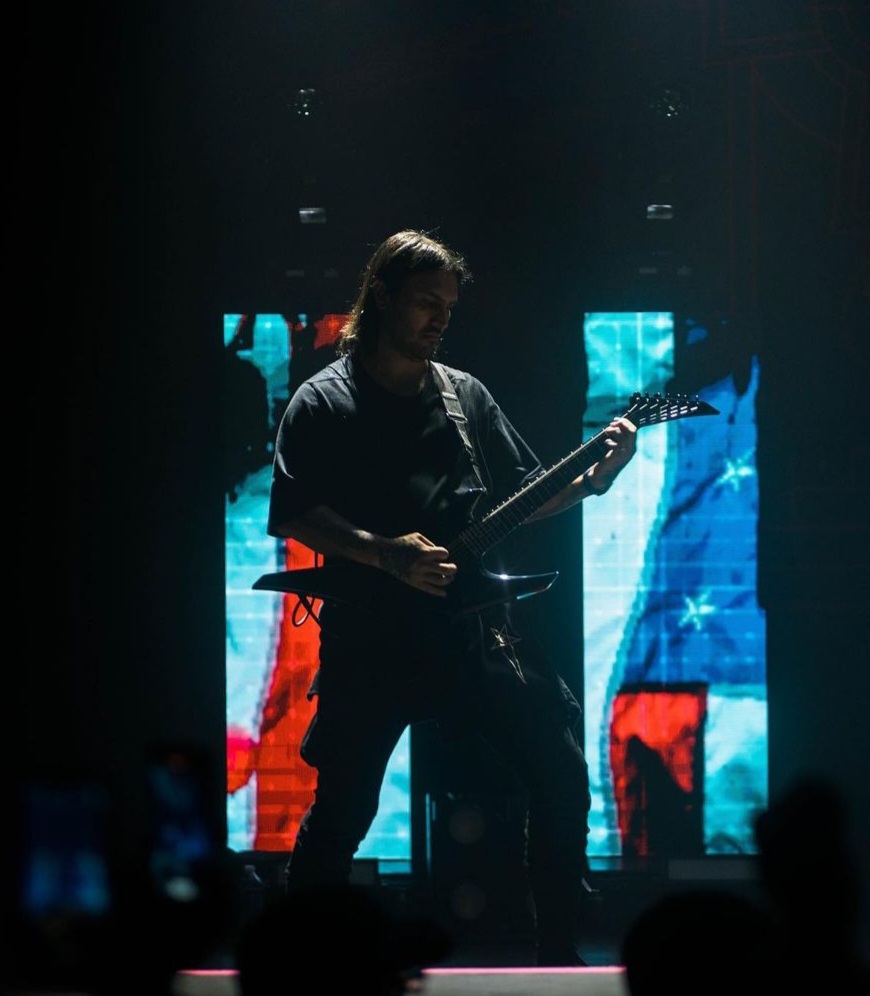16th May, 2023
You are Thy Art Is Murder’s lead guitarist, and band manager, plus you run a management company, record label, and a merch company, as well as being a father. How do you manage all that on a daily basis?
It sure is a lot to balance, and not something I would initially been able to do. In the kitchen, they often refer to it as spinning plates, and you always start with one and then slowly add a second and then a third and so on. Organisation is key and setting systems in place for tasks and deadlines an absolute must, you absolutely cannot trust yourself to remember so many things. It’s important to love what you do, otherwise taking on so much work could really kill your soul, I am very grateful music has given me this great scaffold onto which I can assemble so many small businesses.
Do you believe taking on the role of manager of the band has impacted your experience as a musician?
Not so much as my experience working with Will Putney for so long has. Obviously, he is a world famous producer but above that I would say he is one of the world’s great song writers. Working under his watchful ear and eye for over ten years has certainly moulded the sounds I pursue towards song writing, and this has influenced the way I play guitar. As the manager, I do have to take into consideration the commerce of the band’s business and this holistic approach has contributed creatively to some degree.
What do you think sets TAIM apart from other bands in the deathcore genre?
Song writing and intensity, if I had to distil it to two words. We think of our own music as a platform for delivering a message, where I think in many other bands, and in ourselves early on, the song only serves to deliver as much sonic brutality as possible. Melding a wider array of emotions with the music and lyric has served us well.
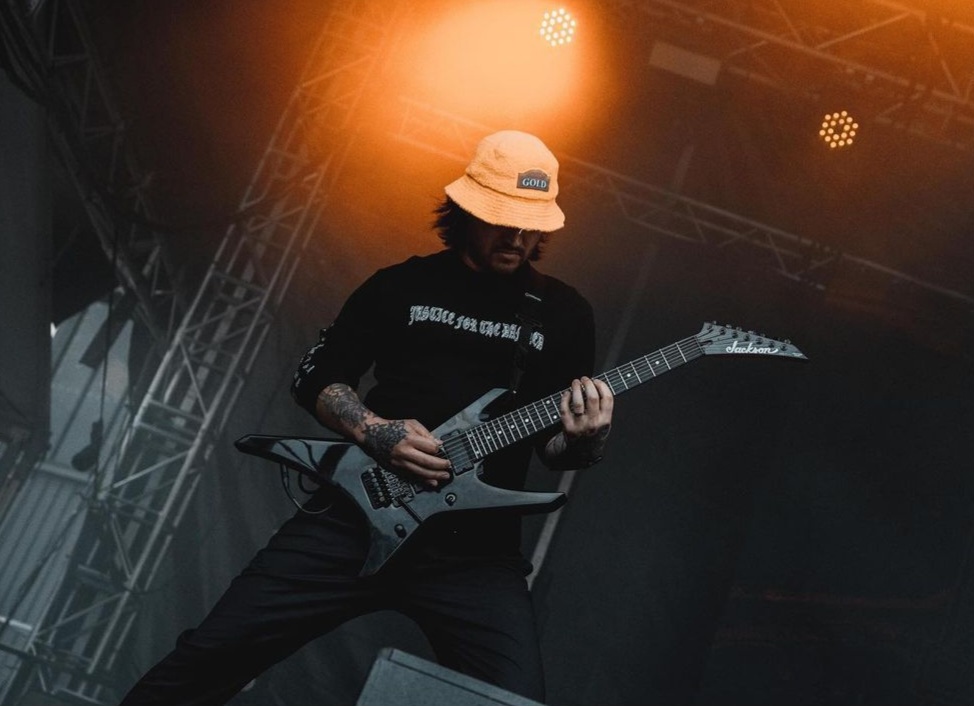
photo : Third Eye Visuals
You just finished successful Australian and American headlining tours for the 10 th anniversary of Hate. What were some highlights and challenges of that tour?
Logistics and cash flow are always very difficult in the touring world and are the constant great puzzle I have the joy of solving on a daily basis. With respect to highlights, finally delivering the album in full at a scale we could only have dreamed of over ten years ago was an incredibly rewarding experience and validated the confidence we had in the record when we crafted it.
The upcoming release, The Aggression Sessions, features a cover of Cannibal Corpse’s, Hammer Smashed Face, one of the most famous death metal songs in history. Whose idea was it to use that one? Are you a fan of Cannibal Corpse’s music?
As a band we just settled on it really. We recorded the split in late November 2019, immediately after finishing up a tour with Cannibal Corpse and so naturally we gravitated towards one of their big hits. If I had my time over again, I think I would’ve gone for Evisceration Plague.
How would you personally describe Thy Art’s current sound? Do you still class yourselves as deathcore?
Not many artists really like to put themselves in a box or restrict themselves to one category. We think of ourselves as a metal band as that’s about as much thought as we put into it.
TAIM has become known for it’s intense live shows and loyal fan base. What
do you think it is about the band’s music and performances that resonates with fans?
I really have to circle back to those two words from before, song writing and intensity. We have become known for putting on intensely engaging and entertaining shows around the world, and we pride ourselves on that level of proficiency and professionalism.
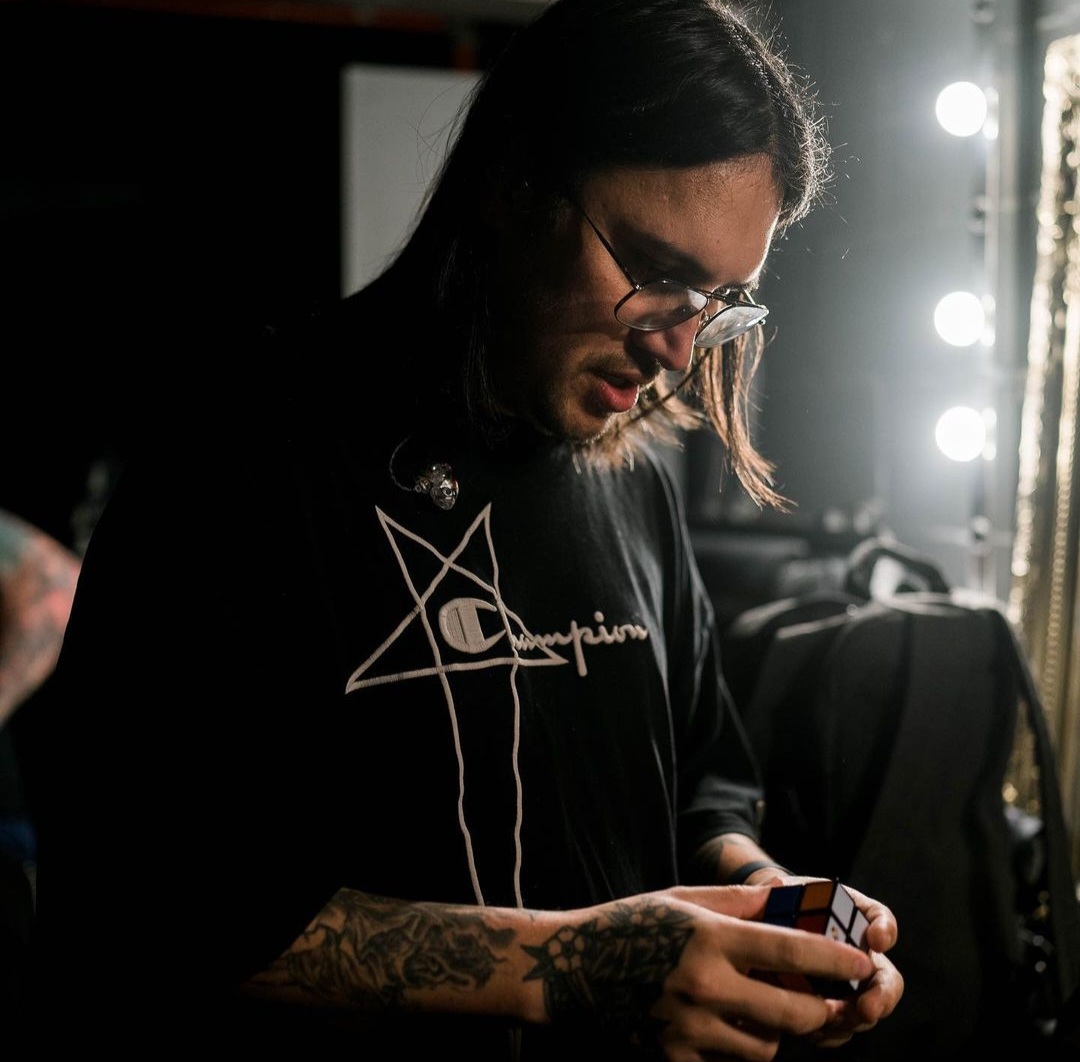
photo : Jack Rudder
Why heavy music? What is it about this style and sound that attracts you to it?
This is a rather philosophical question and answer for me. Early on I realized there wasn’t much I could not achieve if I could focus my energy towards it, but down each of those paths lay an almost certain outcome. Playing music, making art and expressing yourself, those outcomes are never certain. There is no retirement fund, no regular pay rise or promotion, and while most people wither in these sorts of environments and gravitate towards certainty, I never did. The road less travelled, if you will.
How did you first discover and get into metal?
Like most people your age, I came across music during my time in high school, although quite late. Music was not allowed for me at home so I would skate over to friends’ houses after school and they would share new bands they had discovered with me.
Was there a defining moment that made you decide to play an instrument?
Not entirely, but somewhat. I played rugby throughout school to a relatively high level and suffered a career ending injury when I was 17, crushing the right side of my face in. During my time in hospital throughout my final grade of school I would read music and guitar magazines and became fascinated with the idea of creating something out of nothing. As soon as I finished school I left home, bought a guitar and began this wild journey.
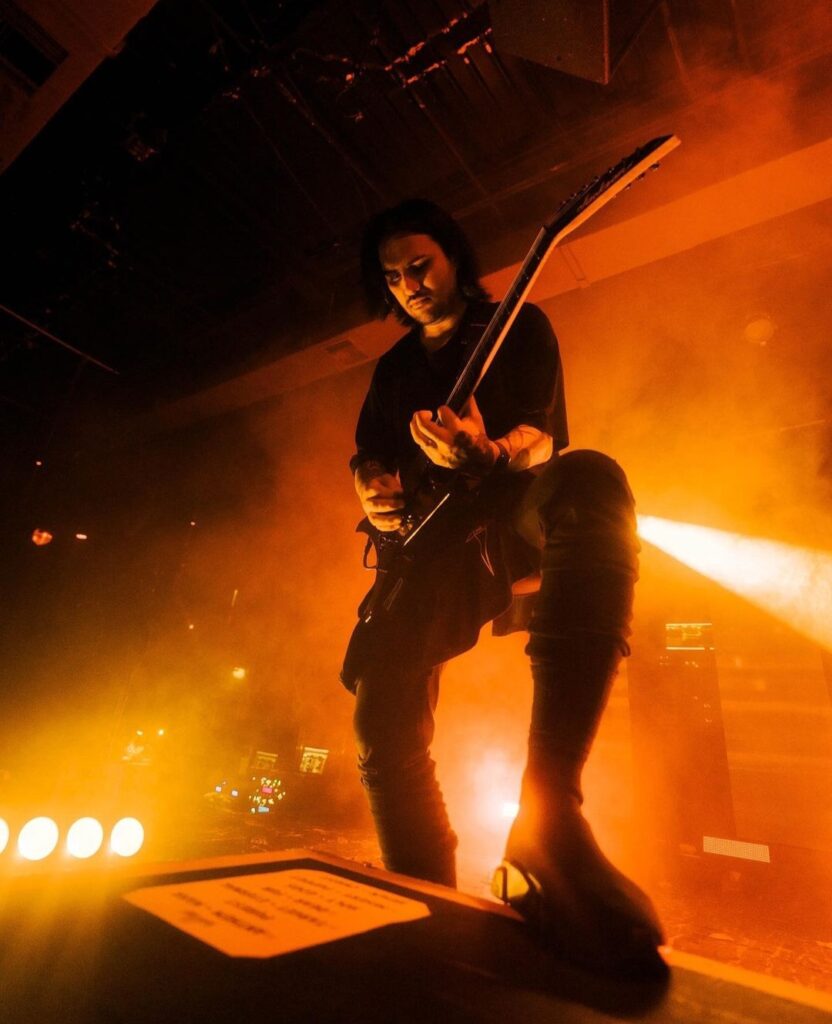
How did you learn to play guitar?
From those guitar magazines. In a sort of Matrix like move, I absorbed as much information as I could about music theory and tablature while I was in hospital and picked a guitar up and started going for it, sometimes up to twelve hours a day. I am completely self-taught in guitar, and in most things that I now do.
Were your parents supportive of your choice to play an instrument, and play in a band?
Absolutely not, in fact you might say the conflict surrounding my uncertainty after school, given my injury, led to some heavy discussion in the household. My parents have only in recent years learned what I have been doing all this time.
As a guitarist, who are some of your biggest musical influences, and how have those influences informed your playing and song writing?
Whilst not all are apparent in the music of the band, my big initial influences were bands and guitar players such as Muse, Tool, Metallica, Steve Vai, Dream Theater, Paul Gilbert and so on. What really got me onto this heavy music kick was going to local shows in Brisbane. We had Parkway Drive and The Amity Affliction playing on a monthly basis and seeing the immediacy of music really drove home the idea that perhaps one day I could do what they were doing, making music, playing shows and going on tour. Never in my wildest dreams would I have imagined I would go on to play guitar for both of those bands.
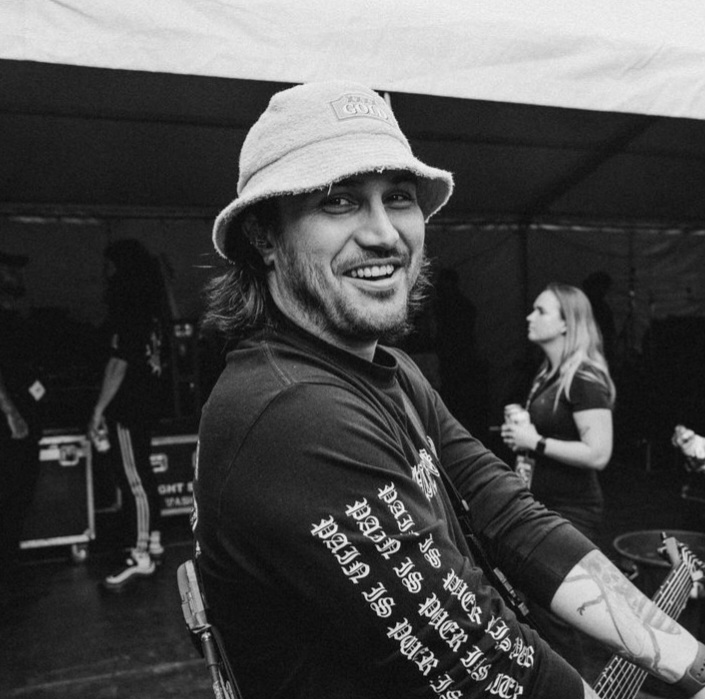
photo : Third Eye Visuals
How do you approach writing and playing lead guitar parts?
These days I tend not to think too much about it, I imagine some sounds in my head and try to play them on the guitar, or I just mindlessly noodle until my hands play something that sounds cool to me. With overlaying leads, I try to think in terms of verticality, is there a lower, middle or higher part of the music structure that is missing to my ear. For solos, I mainly focus on trying to take the song to a new place and creating my own little mini song within a song.
How much does a solos playability in a live situation play a factor in how it is written for the song?
Unfortunately, I don’t really think about those things at the time and have really backed myself into a corner. There are some solos from throughout my career that are not very playable unless you can commit many hours a day towards practice. Sadly, as the business side of the industry has grown to consume most of my time, there isn’t much left for practice.
In your opinion, what makes a memorable guitar solo?
Having something singable and memorable, as well as trying to craft this song within a song idea. To me that is what I want to hear from a solo, and something I try to contribute to the song.
You are a very accomplished and respected guitarist yourself, yet other extreme metal guitarists, such as David Davidson and Adam Demicco, are setting the bar ridiculously high when it comes to technical ability. Do you feel any pressure when writing solos to keep up with these types of players?
I am too old now to be thinking of ways to keep up with other guitar players. It’s not greed that makes the world go around but envy, and I try to free myself of ever feeling that. Players like those are on a whole other planet to me technically, so I focus on improving what I can within our own songs.
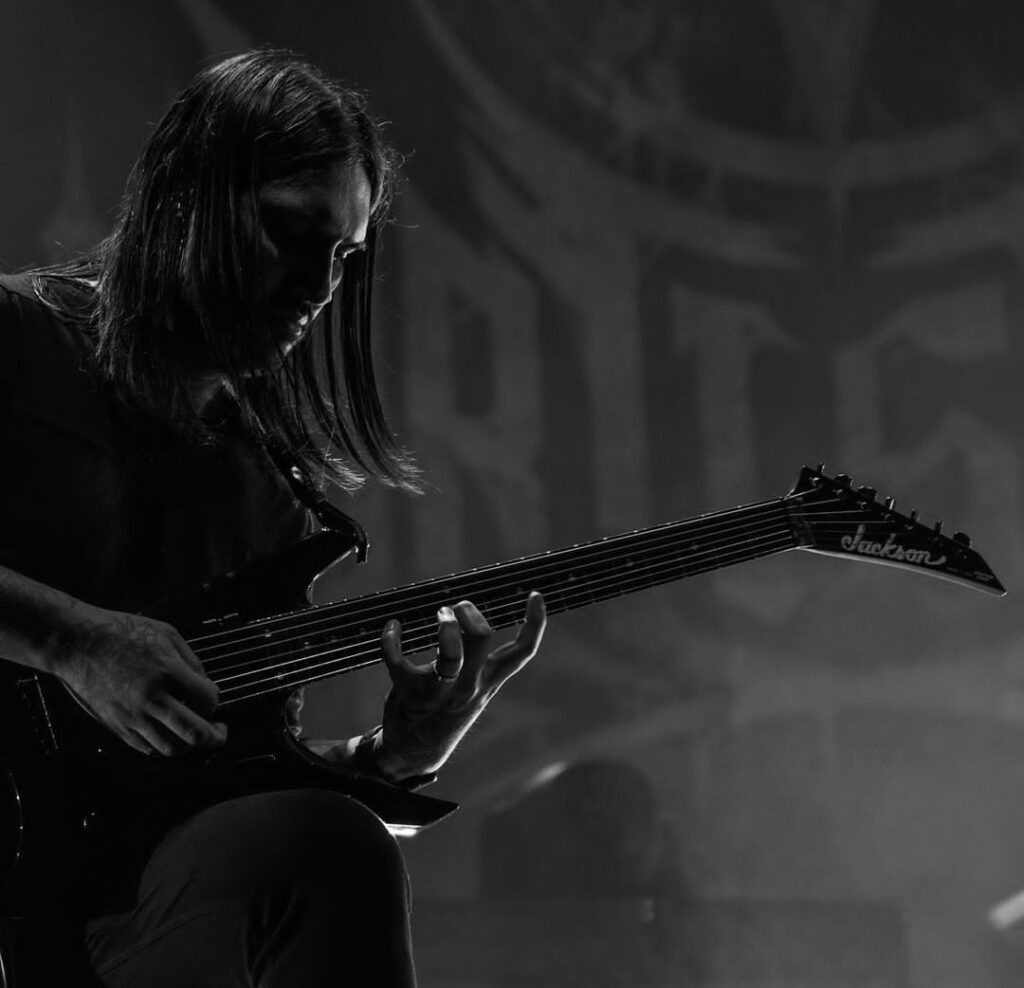
photo : Lena Mauskewitz
Have you thought about releasing guitar tab books for any of your albums?
I have been slowly working on the back catalogue and hope to have something to present by the end of 2023. At first, I didn’t think much of them from a financial point of view, but knowing how meaningful and important it was to me coming up, being able to get inside of the minds and hands of my favourite musicians, it would be nice to give that back to our fans.
As busy as you are with all your roles, how often do you get to practice guitar?
I would say I practice maybe a couple of hours a year, mostly on the day before a tour and while we are in the studio.
Has becoming a father influenced your approach to the lyrics you write?
It certainly has. There are a wild and varied range of emotions that never occurred to me until I became a father and having a more diverse pallet to draw ideas and colours from has only helped.
Do you ever have the urge to write and record any of your own music? Are there any Andy Marsh solo tunes hidden away anywhere?
Given my love for instrumental music, I certainly have thought about it, the only hindrance is where to find the time!
What artists, old or new, are you listening to currently?
I don’t get to recreationally listen to music much these days. While we are in the album campaign for TAIM I am to our own record a lot, trying to find ideas for music videos, touring and merchandise. I frequently listen to submissions to the record label, and other bands we might be interested in touring with. A friend recently made me a playlist to jam on while I’m travelling and that has been helpful in getting out of the box.
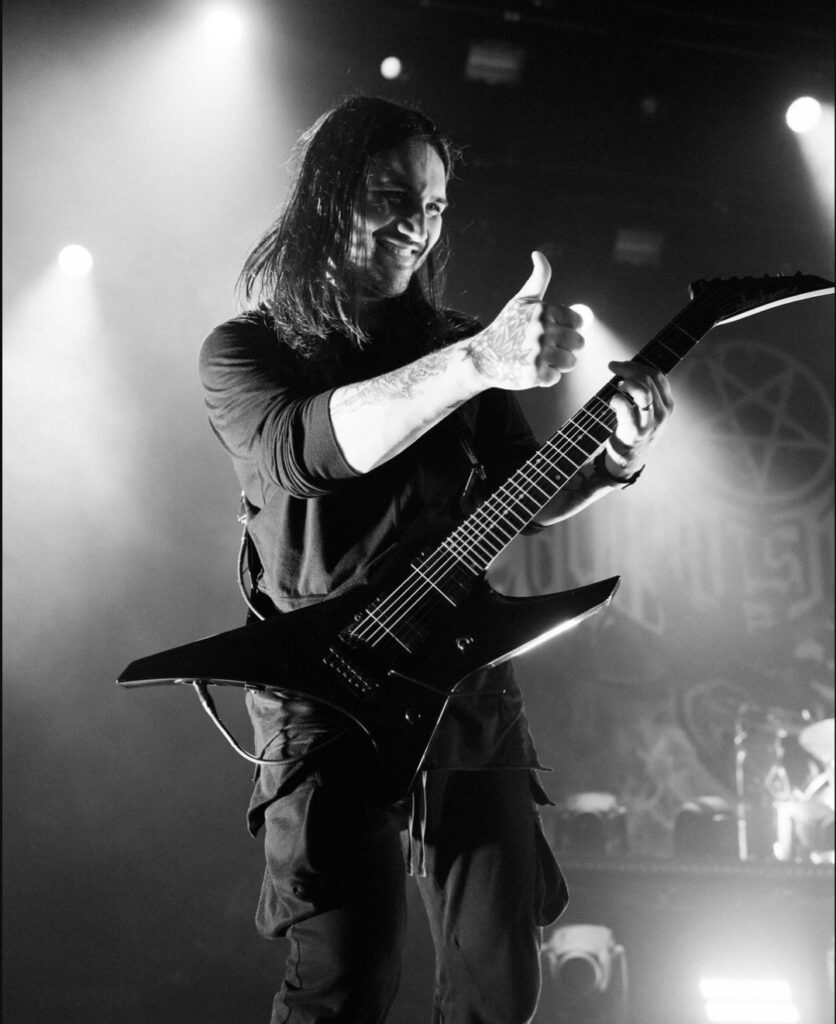
photo : Jack Rudder
Can you give us a rundown of your roles within Merch Warfare, Human Warfare, and Graphic Nature? Do you have any employees, or is it all you?
The businesses are all symbiotic and run in step with TAIM to a degree. Graphic Nature was the brain child of Will and myself in 2015 as we were unsatisfied with the managerial offerings for bands of our size. Given my experience in the studio, on the road playing in the band and teching for others, I felt I had a good leg up on what goes on day to day for a band.
Through Graphic Nature I handle the management and promotion duties for a whole host of bands, booking tours, managing finances, legal ongoings, touring, merchandise management, album campaigns etc.
Human Warfare is the record label side of the business and controls the compositions of TAIM, Fit For An Autopsy, Great American Ghost and a few other bands that I am a friend and fan of. Most of this work is organisation of releases, accounting, marketing and advertising work as well as a little bit of legal work. There is a great opportunity to get involved creatively with other bands that I don’t manage through this and that is the aspect I enjoy the most.
Merch Warfare is a D2C business that I established during Covid to help service the ANZ market’s appetite for heavier niche bands. It started out with a few in 2020 and has grown to encompass over 20 bands and artists that I admire and enjoy working with.
I do not have any employees, however rely on a few key partners and contractors that help me, namely my spouse who handles most of the shipping at MW, my accountant and lawyer who are with me across everything, and a few key roles in PR, artwork and design etc.
What is the most rewarding aspect of being a member of TAIM, both professionally and personally?
Making music you like with the people you love, what could be more exciting and rewarding.
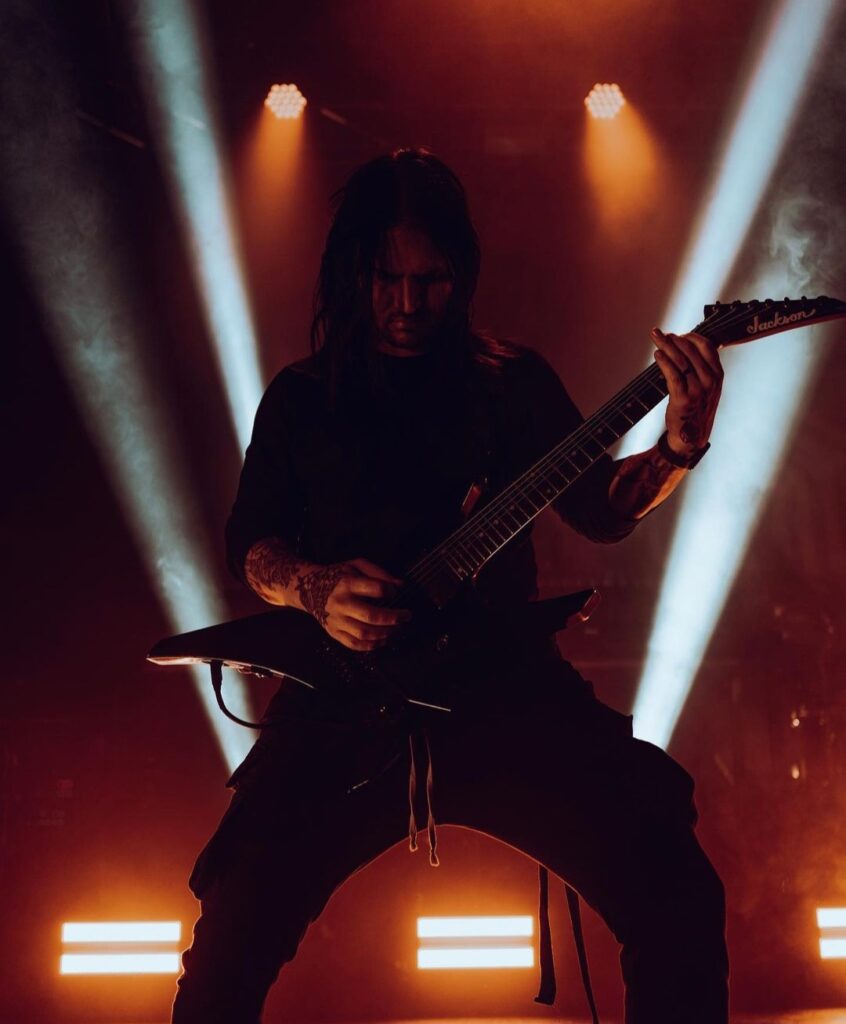
photo : Runar Hrodi
How do you stay motivated and inspired to continue making music and touring with TAIM?
If you believe the best is behind you, why do anything at all?
What advice would you give to aspiring musicians who are just starting out in the industry? Would you encourage them to take on more roles themselves, like you did?
Whilst I most certainly recommend it, I cannot say that this much work and responsibility is for everyone. Know your strengths and weaknesses and work within your circle of competence.
What’s the last show you saw that you weren’t playing at?
As a ‘music professional’, it is part of my job to be at shows and I go to as many as possible in the few weeks a year that I am home. The last gig I went to as a punter was Sleep Token a couple weeks ago.
Specifically, what gear do you play?
I play Jackson Custom Shop guitars strung with Ernie Ball Slinkys. I use Dunlop .88 Jazz III XL picks, and use a Kemper amplifier on tour. In the studio, we get nutty with pedals and real amps and frequently use 3-5 across a single record.
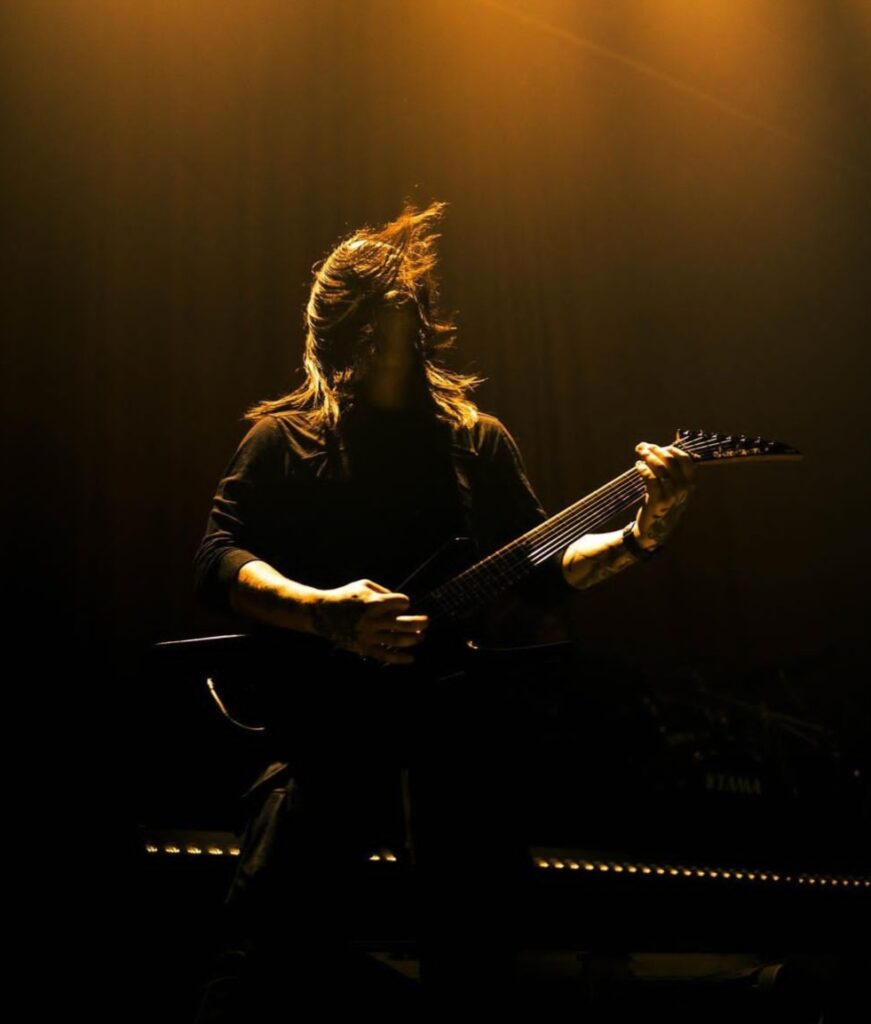
photo : Jack Rudder
Andy Marsh : @stillupsocut
Thy Art Is Murder : @thyartinstagram
Merch Warfare : @merchwarfare
Human Warfare : @humanwarfare
